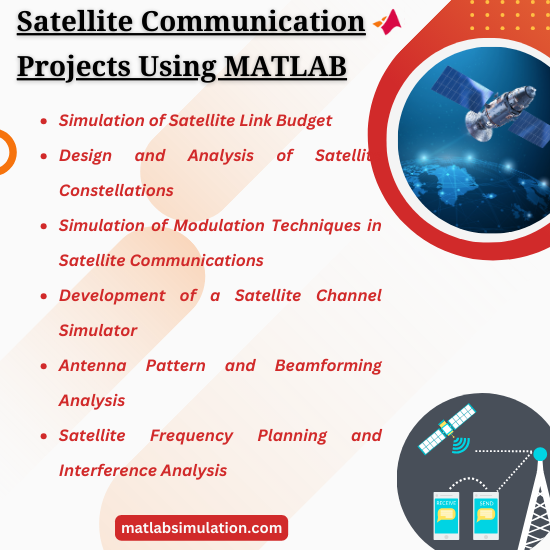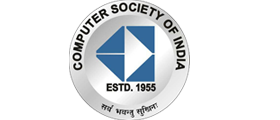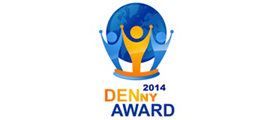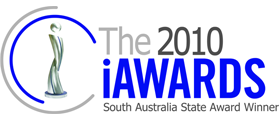There are various satellite communication-based projects that employ MATLAB in an extensive manner. Our team of experts has recently completed several Satellite Communication Projects using MATLAB. If you are interested in exploring your research area further, please feel free to contact our support team. By staying in touch with us, you can enjoy the benefits of our research expertise. Relevant to the domain of satellite communication, we suggest some interesting project plans which use the broader functionalities of MATLAB significantly:
- Simulation of Satellite Link Budget
- Goal: For simulating the satellite link budget estimation that specifically encompasses various factors like frequency aspects, distance, antenna gains, and energy, intend to create a MATLAB framework.
- Technique: In order to estimate and visualize the link budget, particularly for various satellite interaction contexts, develop GUIs and scripts through the utilization of MATLAB. To examine standard and robustness of signal, include several attributes like bandwidth, antenna diameter, and satellite altitude.
- Anticipated Results: This project idea supports the enhancement of satellite interaction arrangements through the tool which enables users to enter particular arguments and obtain insights based on link budgets in an elaborate way.
- Design and Analysis of Satellite Constellations
- Goal: By employing MATLAB, model different satellite constellation arrangements. In addition to that, their efficiency and coverage have to be studied.
- Technique: Consider the simulation of various satellite constellations such as Star, Walker Delta, and Polar constellations through the use of MATLAB. Their latency factors and local or worldwide coverage must be assessed.
- Anticipated Results: Comparison of different kinds of constellation results in-depth performance reports. For particular interaction requirements, it offers perceptions based on best designs.
- Modeling and Simulation of Modulation Techniques in Satellite Communications
- Goal: Various digital modulation approaches like FSK, QAM, and PSK which are utilized in satellite communications have to be designed and compared. In terms of different channel states, evaluate their performance.
- Technique: Develop simulations which consider signal fading, interruption, and noise to design modulation plans. For that, employ the Communication System Toolbox of MATLAB. To assess performance, carry out the bit error rate (BER) investigation.
- Anticipated Results: Suggestions can be offered through comparing different modulation approaches, based on their benefits in various contexts of satellite interaction.
- Development of a Satellite Channel Simulator
- Goal: By including various impacts like phase noise, atmospheric absorption, and rain attenuation, a practical satellite channel simulator has to be created in MATLAB.
- Technique: In MATLAB, apply a simulation platform, which specifically designs satellite channels along with the impairments of the physical layer. To assess the efficiency of signal processing methods and interaction protocols, employ this simulator.
- Anticipated Results: To evaluate and validate novel satellite interaction tools and approaches, an extensive channel model can be utilized in an effective manner.
- Antenna Pattern and Beamforming Analysis
- Goal: For satellite interaction systems, beamforming approaches and antenna designs have to be examined and enhanced.
- Technique: Simulation of beamforming methods and antenna radiation patterns through the employment of MATLAB. For various beamforming approaches and antenna array set ups, examine the sidelobe levels, beam coverage, and gain.
- Anticipated Results: To minimize interruption and improve standard of communication link, it offers enhancement tactics for antenna pattern and beamforming.
- Satellite Frequency Planning and Interference Analysis
- Goal: For interference investigation and frequency planning in satellite communications, create a MATLAB tool.
- Technique: In MATLAB, develop a simulation which is capable of designing the frequency allotment, and across various terrestrial and satellite systems, it can also forecast possible interference contexts. To simulate actual-world scenarios, encompass orbital and geographical data.
- Anticipated Results: With the aid of a planning tool, satellite operators can reduce interruption and handle frequency bands in an efficient manner.
What are some of the practical project topics under GIS that one can undertake for his undergraduate project?
Geographic Information Systems (GIS) are considered as computer-related tools that specifically deal with geographic data. Based on the different concepts, we recommend a few realistic as well as compelling GIS-based project plans that can motivate you to carry out your undergraduate research in an effective way:
- Urban Planning and Management
- Research Topic: Examining Urban Heat Islands in Major Cities
- Aim: To detect urban heat islands, model temperature differences across a city utilizing GIS. By means of urban planning approaches such as enhanced vegetation and green roofs, suggest reduction policies.
- Environmental Conservation
- Research Topic: Habitat Suitability Mapping for Endangered Species
- Aim: On the basis of various ecological attributes like human interference, climate, and vegetation, appropriate habitats have to be evaluated and modeled using GIS for a particular species that is at risk. Offering support in conservation endeavors is the major aim of this project.
- Public Health
- Research Topic: Spatial Analysis of Access to Healthcare Amenities
- Aim: For finding unprivileged regions, the spread of healthcare amenities in a specific area has to be examined. To enhance availability, recommend potential locations for novel amenities.
- Disaster Management
- Research Topic: Flood Risk Evaluation Utilizing GIS
- Aim: To assist local governments in the process of planning and disaster alertness, flood risk maps have to be developed in terms of rainfall patterns, elevation models, and previous flood data through the use of GIS mechanisms.
- Agriculture
- Research Topic: GIS in Smart Farming
- Aim: In order to strengthen the effectiveness of crop production and enhance agricultural management, study crop wellness, soil features, and water distribution by employing GIS.
- Transportation
- Research Topic: Enhancing Public Transit Paths and Planning
- Aim: The latest public transportation systems have to be examined with the support of GIS. Regarding traffic patterns, user requirements, and density of population, suggest enhancements for paths and planning.
- Economic Geography
- Research Topic: Economic Influence of Tourism Employing GIS
- Aim: To aid in tactical scheduling and support for sustainable tourism, the spatial distribution of tourism amenities must be examined. In addition to that, their economic influence on native people has to be studied.
- Crime Analysis
- Research Topic: Crime Hotspot Mapping
- Aim: The major goal of this project is to examine spatial patterns relevant to the crime in a specific city and detect some major zones. In creating intended prevention tactics, support committees and law enforcement strategists. All these can be accomplished with the help of GIS.
- Water Resources
- Research Topic: Watershed Analysis for Water Quality Management
- Aim: Carry out a watershed analysis through the utilization of GIS. To enhance the policies for handling water quality, this analysis process must have the ability to find the overflow patterns and pollution origins.
- Renewable Energy
- Research Topic: Detecting Possible Sites for Solar Farms Utilizing GIS
- Aim: By focusing on various aspects such as land use, closeness to power grids, and sunlight radiation, detect best locations for solar farms. For that, meteorological and geographic data must be examined by employing GIS.
- Historical Studies
- Research Topic: Digital Rebuilding of Historical Sites
- Aim: To rebuild urban platforms or historical views in a digital manner, the latest satellite imagery and previous maps has to be integrated with the help of GIS. This project plan is specifically for offering perceptions based on the periodical transformations.
- Climate Change
- Research Topic: Tracking Coastal Erosion Due to Sea-Level Rise
- Aim: According to increase in sea-level, track and forecast periodical variations in coastal lines by utilizing GIS. In climate change transformation policies, it could offer extensive support.

Satellite Communication Thesis Using MATLAB
If you are in search of proficient Satellite Communication Thesis ideas utilizing MATLAB, commence your project with the assistance of the team of experts at matlabsimulation.com. Our team will provide complete guidance and a concise explanation, along with exceptional simulation support. We ensure that all the reference paper details used for your research will be shared with you, allowing you to work with us confidently.
- Spatial-spectral classification of hyperspectral remote sensing images using 3D CNN based LeNet-5 architecture
- Codification to secure Indonesian peatlands: From policy to practices as revealed by remote sensing analysis
- Measurement of in-vivo spectral reflectance of bottom types: Implications for remote sensing of shallow waters
- Informing the SWAT model with remote sensing detected vegetation phenology for improved modeling of ecohydrological processes
- MOL: Towards accurate weakly supervised remote sensing object detection via Multi-view nOisy Learning
- MDMASNet: A dual-task interactive semi-supervised remote sensing image segmentation method
- An attention-based dual-encoding network for fire flame detection using optical remote sensing
- Assessing the effect, attribution, and potential of vegetation restoration in open-pit coal mines’ dumping sites during 2003–2020 utilizing remote sensing
- MDMASNet: A dual-task interactive semi-supervised remote sensing image segmentation method
- Semi-supervised bidirectional alignment for Remote Sensing cross-domain scene classification
- Remote sensing–based soil water balance for irrigation water accounting at plot and water user association management scale
- Semantic segmentation of high-resolution remote sensing images based on a class feature attention mechanism fused with Deeplabv3+
- Very high-resolution remote sensing-based mapping of urban residential districts to help combat COVID-19
- Pruning for image segmentation: Improving computational efficiency for large-scale remote sensing applications
- A new strategy for environmental flow management by using the remote sensing method
- Predicting subsurface thermohaline structure from remote sensing data based on long short-term memory neural networks
- Identifying seasonal differences in migration characteristics of Oriental white stork (Ciconia boyciana) through satellite tracking and remote sensing
- Detecting candidate high NOx emitting light commercial vehicles using vehicle emission remote sensing
- Aerial hyperspectral remote sensing detection for maritime search and surveillance of floating small objects
- Evidence-based alignment of conservation policies with remote sensing-enabled essential biodiversity variables












